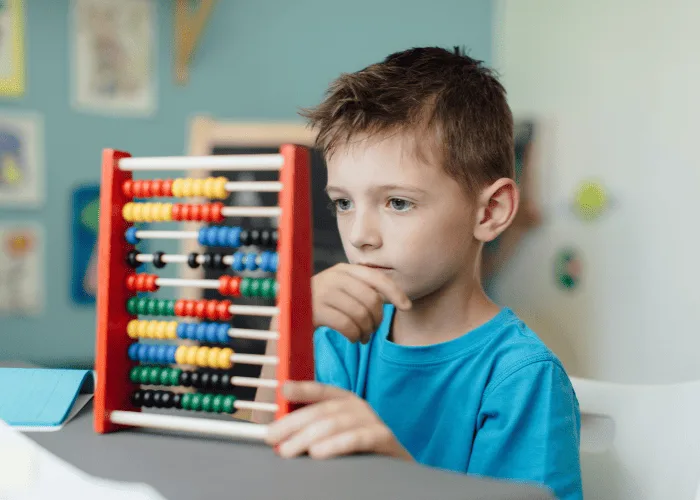In today’s divisive world, it’s vital to start raising free thinkers instead of simply creating followers. By encouraging your kids to think critically and make decisions for themselves, you can help them develop the skills they need to become successful and confident individuals.
Consider this complicated moral dilemma: You see a someone rob a bank, but then they give the money to a struggling orphanage. Do you call the police or let the orphanage keep the money?
This question was asked to 150 study participants – with one caveat. Half of the participants were told that the majority of other participants said they would call the police. And the other half were told the majority said they would not call the police.
Interestingly, the study found that in most cases, people answered the way they thought everyone else did.
It demonstrated what we already know in our hearts – humans are wired or trained to follow and not lead.
So, as parents how do we go about raising free thinkers when society encourages them to follow the norm? And is it worth all the trouble?

The Importance of Fostering Free Thinking in Children
The education system revolves around multiple choice options, strict schedules, and timed tests. Unfortunately, this doesn’t teach our children HOW to think for themselves.
Heck, the news and social media is trying to tell us WHAT to think.
On the other hand, children who are taught to think independently and critically are more likely to thrive in today’s rapidly changing world. Free thinking allows them to question the status quo, challenge existing ideas, and come up with innovative solutions.
Free thinking helps children develop their own identities, build self-confidence, and become more assertive. It encourages them to explore different perspectives, make informed decisions, and take responsibility for their actions.
As a parent, it is your responsibility to raise kids with open minds and inquisitive thoughts.

5 Strategies for Raising Free Thinkers
While fostering free thinking in children is essential, it comes with its own set of challenges. In a world that often prioritizes conformity and obedience, encouraging independent thought can be met with resistance.
Luckily, if you follow these 5 strategies you can begin to raise leaders, not followers.
1) Teach that Failure IS an Option
Children might hesitate to express their opinions or take risks because they are afraid of making mistakes or facing criticism.
It just feels easier to do what everyone else is doing.
As parents or educators, we need to create a safe and supportive environment where children feel comfortable expressing themselves and know that failure is a part of the learning process.
Talk openly and often to your child about losing, failing, and making mistakes. Share these quotes with them:
- “I’ve failed over and over and over again in my life. And that is why I succeed.” — Michael Jordan
- “One who fears failure limits his activities.” ― Henry Ford
- “I have not failed. I’ve just found 10,000 ways that won’t work.” -Thomas A. Edison
- “Every adversity, every failure, every heartache carries with it the seed of an equal or greater benefit.”-Napoleon Hill
- “We’re stronger in the places that we’re broken.” – Ernest Hemingway
Read: How to Raise Kids who Don’t Give up Easily
2) Encourage Kids to Pursue Unconventional Paths
It’s easy to go with the flow and do what everyone else is doing, but it is not always the best solution.
Curiosity is the driving force behind learning and discovery. When children are naturally curious, they actively seek knowledge, ask questions, and engage in meaningful conversations. Here are three strategies to cultivate curiosity in children:
- Engage in open-ended conversations: Encourage your children to ask questions and explore different topics. Instead of providing all the answers, engage in conversations that encourage critical thinking and problem-solving. Ask questions like: “How would you have done it instead?” or “Can you think of a better way?”
- Provide opportunities for hands-on learning: Engage your children in activities that allow them to explore and experiment. This could include science or art projects and outdoor adventures. This gives them the experiences needed to make confident decisions in life.
- Expose them to diverse experiences: Expose your children to different cultures, ideas, and perspectives. This can be done through books, movies, travel, or even meeting people from different backgrounds. Experiencing diversity helps children develop empathy and broadens their understanding of the world.
When you encourage children to become active participants in their own decisions and actions, they will feel comfortable exploring new ways of doing things in life.
Related: Get to Know Your Kid Better with these Deep Conversation Starters.

You May Also Like: Lessons About Faith and Jesus for Kids
3) Allow Kids to Question Norms
The path to raising free thinkers starts at home.
I often wonder how so many people went along with the terrible things that happened in Germany during World War II. Obviously there was a fear factor. However, many people also were trained – through propaganda and such – to shut up and do as they were told.
If kids aren’t allowed – no, encouraged – to question societal norms at home, then they will not feel comfortable questioning things outside of the home.
Parents can do this by:
- Ensuring your kid feels loved unconditionally – and not worried that they will be punished for unconventional questions
- Questioning things yourself – openly talk to your children about things you question (politics, family issues, or school concerns)
- Focusing on your family values and principles and ask your child what their opinion is on these topics
Also Read: How to Raise a Critical Thinker
4) Talk to Them About How and When to Challenge Authority
Of course you want your child to be respectful to authority figures, such as police officers, teachers, and coaches. But, the fact is – sometimes authority figures are wrong.
There is a difference between respecting rules and grown-ups – and blindly following them.
Part of raising free thinkers is to explain to your child the following:
- There is always more than one side to a story
- It is ALWAYS okay to ask questions
- If something doesn’t feel right or makes you feel uncomfortable, trust your gut instinct
Asking “says who” will get your child to think about what side of the story they are hearing.
While we should follow directions and respect authority, it is important to use your own critical thinking skills and life experiences to think through things yourself.

5) Preach the Importance of Embracing Other Opinions
One news channel says one thing, and the next channel says something completely different. How do we know which is right?
When it comes to free thinking, sometimes listening is just as important as talking.
Children should be encouraged to listen to both sides of a story, so that they can use critical thinking skills to develop their own opinion.
Help your children develop effective communication skills, such as articulating their thoughts clearly and respectfully, active listening, and understanding different perspectives.
Foster an environment where your children feel safe expressing their thoughts and beliefs. Even if it is different than what you believe. Encourage open and honest communication, and let them know that their opinions are valued.
If your child does not agree with someone, teach them that everyone comes from different backgrounds and has different life experiences. It is okay to ‘agree to disagree’ in certain situations.
Also Read: tips to raise humble kids in a society obsessed with pride.
Final Thoughts on Raising Free Thinkers
Empowering our children to become free thinkers is a gift that will benefit them throughout their lives.
By fostering curiosity, nurturing critical thinking skills, and teaching them to question authority, we equip them with the tools they need to navigate through the complexities of the world. Free thinkers are more likely to become confident leaders, innovative problem solvers, and compassionate individuals who contribute positively to society.
For more ways to raise kids who are healthy at home and strong in the world, follow us on Facebook.
You may also enjoy: How to Romanticize Your Life and All About Returning to Your Roots.

